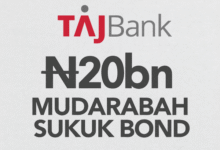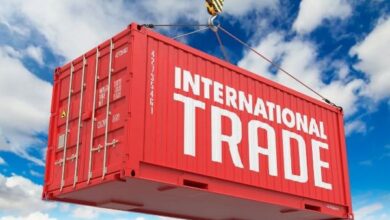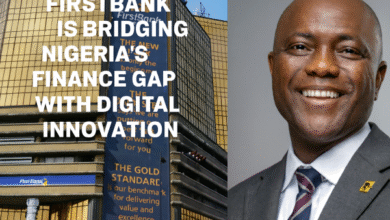FG Launches Nigeria’s National Digital Trustmark to Restore Confidence in Online Transactions

Building Trust in Nigeria’s Digital Economy
The Federal Government of Nigeria has launched the National Digital Trustmark, a groundbreaking platform designed to rebuild public confidence in online transactions and enhance the credibility of Nigerian e-commerce platforms.
Unveiled in Abuja during a joint press briefing involving the National Information Technology Development Agency (NITDA), Corporate Affairs Commission (CAC), Central Bank of Nigeria (CBN), and Nigerian Communications Commission (NCC), the initiative represents a major milestone in the nation’s digital transformation journey.
The Digital Trustmark provides a verifiable certification mechanism and “badge of trust” for e-commerce, fintech, and other digital platforms operating in Nigeria — aimed at curbing online fraud, scams, identity theft, and forgery while strengthening trust and competitiveness in the digital space.
“It is sad for Nigerians to be classified as scammers and fraudsters,” said Malam Kashifu Inuwa, Director-General of NITDA.
“The Digital Trustmark will help eliminate this perception by certifying genuine businesses, boosting consumer confidence, and promoting Nigeria’s digital integrity globally.”

What the National Digital Trustmark Means for Businesses and Consumers
At its core, the Digital Trustmark serves as a security seal issued by NITDA, indicating that a digital or online business has met certain compliance and authenticity standards.
Certified businesses will display the trustmark badge on their websites, apps, and official documents, showing customers that the platform is registered, traceable, and verified by regulatory authorities.
“The security seal will be embossed on the platforms, letterheads, and official pages for authentication and identification as legitimate entities operating in Nigeria,” Inuwa explained.
While the certification is not compulsory, businesses that adopt it will enjoy enhanced credibility, access to policy support, and increased consumer patronage.
Certification fees will vary based on the size of the business and its industry specialization, ensuring accessibility for micro, small, and medium enterprises (MSMEs).
Restoring Trust in Nigeria’s Online Ecosystem
Nigeria’s digital economy has witnessed remarkable growth, but challenges such as cyber fraud, counterfeit websites, and failed online transactions have eroded consumer trust.
According to NITDA, the Digital Trustmark aims to:
- Reduce cases of online payment scams and identity theft.
- Foster transparency and fair competition in the e-commerce ecosystem.
- Strengthen consumer protection and dispute resolution frameworks.
- Position Nigerian online businesses for global competitiveness.
This initiative aligns with the government’s National Digital Economy Policy and Strategy (NDEPS), which emphasizes trust, innovation, and inclusivity as key enablers of Nigeria’s emerging digital economy.
“The trustmark will elevate Nigerian businesses to global standards by ensuring accountability, transparency, and professionalism,” Inuwa added.
Global Collaboration and Local Implementation
The Trustmark initiative is being implemented in partnership with the German International Cooperation Agency (GIZ) and the National Association of Chambers of Commerce, Industry, Mines and Agriculture (NACCIMA).
Mr. Jani Ibrahim, President of NACCIMA, described the launch as “a major step toward building a safer, more trusted, and globally competitive digital economy for Nigeria.”
Represented by Mr. Suleiman Audu, his Special Adviser on Digital Economy Trade Group, Ibrahim said the initiative would eliminate bureaucratic bottlenecks and ensure seamless adoption across Nigeria’s online business landscape.
“We are committed to working with all stakeholders to ensure the Trustmark operates efficiently and transparently,” Ibrahim stated.
The certification will be renewed annually to maintain consistency and compliance with global best practices.
Digital Economy Experts Applaud the Move
Industry experts have welcomed the National Digital Trustmark as a timely intervention in Nigeria’s growing e-commerce sector, which is currently valued at $13 billion but represents just 0.55% of the $27 trillion global e-commerce market.
Mr. Chinedu Albert, GIZ Nigeria Consultant and Public Policy Expert, emphasized that the initiative aligns with the African Continental Digital Trade Protocol, which mandates mutual trust mechanisms among member states.
“The Digital Trustmark directly addresses the trust deficit that limits Nigeria’s participation in the global digital economy,” Albert said.
“It will also strengthen the competitiveness of Nigerian MSMEs in regional and global trade.”
According to him, a trust-based certification ecosystem is essential to attract foreign investment and integrate Nigerian businesses into the African Continental Free Trade Area (AfCFTA) digital marketplace.
CBN, CAC, and NCC: A Unified Front for Digital Confidence
The collaboration between NITDA, CBN, CAC, and NCC underscores a unified government approach toward regulating and protecting digital commerce.
The CBN is expected to complement the initiative with policies that safeguard online payments and fintech transactions, while the CAC will ensure only legally registered businesses qualify for certification.
The NCC, on the other hand, will play a pivotal role in monitoring digital platforms and ensuring compliance among telecom operators and internet-based service providers.
This synergy represents one of the most coordinated digital regulatory frameworks in Nigeria’s recent history — a move that could serve as a model for other African economies grappling with cybercrime and consumer distrust.
BRANDECONOMY INSIGHT: Digital Trust as the New Currency
Nigeria’s bold step toward establishing a National Digital Trustmark is a clear indication that trust is the new currency in the digital economy.
In an era where online scams and digital fraud undermine growth, trust-based governance mechanisms like this are not only desirable — they are essential.
By formalizing verification through a verifiable seal of authenticity, Nigeria positions itself to become a hub for ethical e-commerce and fintech innovation in Africa.
For businesses, the Trustmark will serve as a competitive differentiator, signaling legitimacy to local and global partners.
For consumers, it provides confidence and recourse in an increasingly digital marketplace.
If properly implemented, monitored, and renewed annually, the initiative could attract billions in e-commerce growth, boost foreign investor confidence, and drive the next phase of Nigeria’s digital transformation.
Conclusion: Toward a Trusted Digital Nigeria
The launch of the National Digital Trustmark represents more than a regulatory milestone — it is a strategic economic safeguard.
As Nigeria pushes to diversify its economy beyond oil, the digital economy remains a critical growth engine. However, for it to thrive sustainably, trust must underpin every transaction.
Through the combined efforts of NITDA, CBN, CAC, NCC, and NACCIMA, Nigeria is charting a path toward digital credibility, inclusive prosperity, and global relevance.











